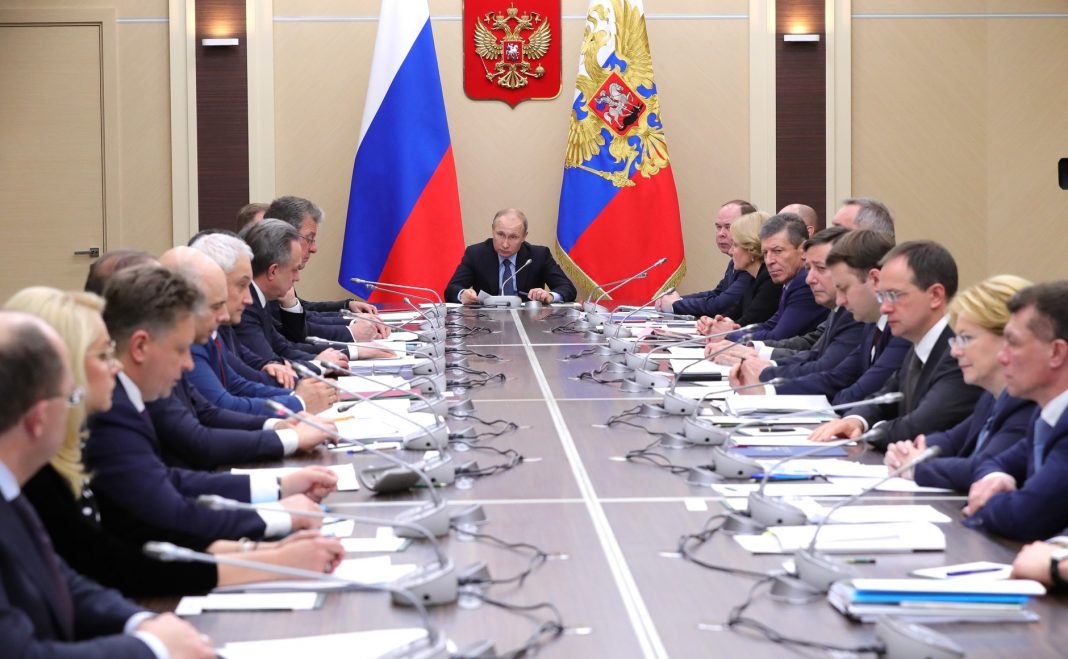Throughout 2022, especially after the start of the so-called “special military operation” against Ukraine and the introduction of harsh Western sanctions against Russia, a new structure of inter-elite relations begins to take shape in the Russian Federation. These processes are superimposed on the process of transit of power, which has been talked about for a long time: in 2024, Vladimir Putin may leave the presidency of the Russian Federation, but he still has not spoken about whether he will stand as a candidate in the elections of 2024, and if not, what is his role in further political processes and what are his preferences regarding a successor.
The complex management system created by Putin implies either the presence of a successor, which is the product of elite consensus, or the prolongation of Putin’s powers for an indefinite period (he is 70 years old, and he does not suffer from any serious illnesses, contrary to the claims of representatives of the opposition camp). In 1725, without leaving orders about the heir and the power structure in Russia, Peter I plunged the empire into a long “era of palace coups.” The last thing Putin would like is for the experience of post-Petrine Russia to be repeated in the 21st century. Moreover, the power in Russia is built in such a way that Putin’s departure without an adequate replacement, to which all the leading players would agree, threatens to seriously destabilise the situation and “war opposition”.
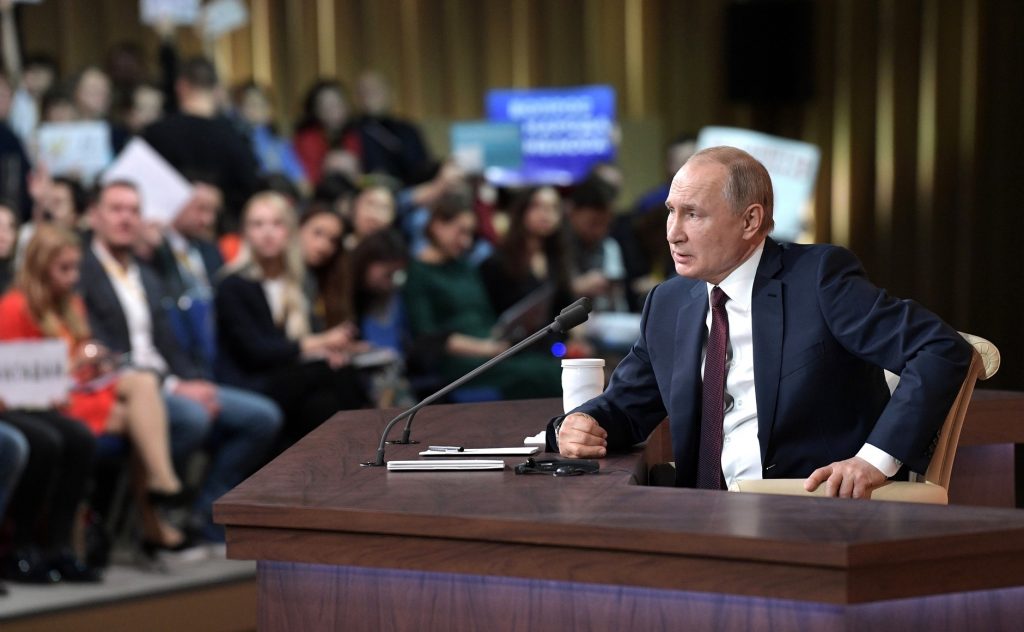
In 2022, against the backdrop of the war in Ukraine, several political groups formed around Putin, waging a tough fight among themselves. Experts have previously spoken of the so-called “Kremlin towers”: elites fighting for influence over Putin. Today they have become even more visible. At the same time, Putin is trying to maintain equidistance from these groups, allowing them to compete within specific rules.
The most powerful resource is possessed by a group of security officials formed around the figure of the Secretary of the Security Council of the Russian Federation, Nikolai Patrushev. The group includes the director of the Federal Security Service, Alexander Bortnikov, the director of the Foreign Intelligence Service, Sergei Naryshkin; almost the entire apparatus of the Security Council; and Patrushev’s son, Dmitry, the Minister of Agriculture of the Russian Federation.
Even though Patrushev has severe influence instruments in his hands, he is by no means a “grey eminence” of Russian politics (although he would like to be one). On the contrary, there are a lot of “alien bodies” in the structures controlled by Patrushev. Thus, in the design of the Security Council, Putin introduced the previously unforeseen position of deputy chairman of the Security Council, who reports not to Patrushev, but directly to Putin (according to the Constitution, the chairman of the Security Council is the President, and Patrushev is the Secretary). Thus, the figure of Medvedev automatically becomes analogous to the position of vice president and simultaneously creates a knot of contradictions within the Security Council.
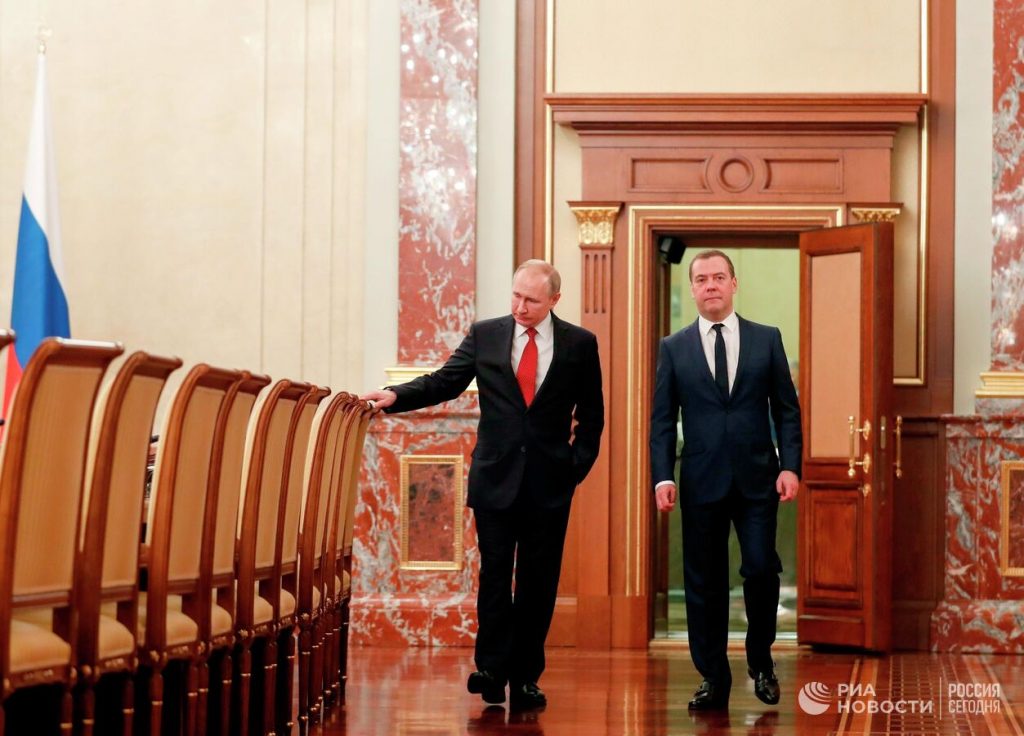
Medvedev has no real influence. Its current status is rather decorative. There are practically no people left in power who could be attributed to the “Medvedev group” (except for his close friend Konstantin Chuichenko, the Minister of Justice of the Russian Federation, who is made to understand in every possible way that he is a temporary figure – the incident with Chuichenko’s refusal to provide government car in May 2020 is indicative). Medvedev has recently personified extreme reactionary forces and made outrageous anti-Western statements, demanding war to a victorious end. Earlier, a liberal and a supporter of reforming Russia along the Western model, today Medvedev has turned into his antipode. Instead, it is about presenting to the West a possible version of “Russia without Putin”: Putin’s successor (which Medvedev might be) will look much more intimidating than Putin himself.
At the same time, Putin’s efforts are cultivating a “new power elite” – people who came to power thanks to unquestioning service to Putin and who are not connected with Putin by joint work in St. Petersburg or Dresden, classes in judo and sambo, living in the Ozero cooperative. However, their career was associated with the service of Putin and utterly dependent on Putin. These include First Deputy Director of the FSB Sergei Korolev, Director of the Federal Security Service Dmitry Kochnev, his deputy Oleg Klimentyev (former head of the personal security of the President of the Russian Federation), Prosecutor General of the Russian Federation Igor Krasnov, Assistant to President Dmitry Mironov, Head of the Control Directorate of the Presidential Administration Dmitry Shalkov and others.
Feeling competition from the “youth”, Interior Minister Vladimir Kolokoltsev (Dmitry Mironov may replace him), the commander of the Russian Guard Valery Zolotov and the chairman of the Investigative Committee Alexander Bastrykin are gradually gathering under Patrushev’s wing. The example of the sudden appointment of Krasnov to the place of the all-powerful prosecutor Yuri Chaika became a lesson for many security officials.
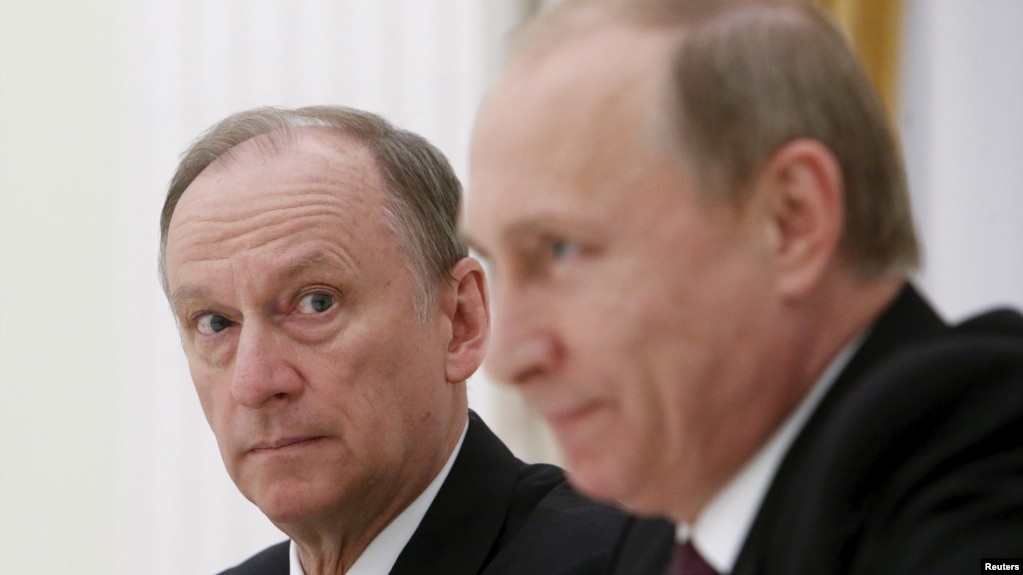
Patrushev’s problem is that he gathers mainly “old” cadres around him. The only helpful personnel acquisition of the Patrushev team was the invitation to the group of the young Alexander Venediktov, who is gradually seizing the initiative from Yuri Ushakov in terms of contacts with the United States and NATO (the area he oversees in the Security Council).
Recently, rumours have begun circulating in the media that Patrushev is preparing his son Dmitry to be Putin’s successor. Those who know the Patrushevs understand that the weak-willed, drug-addicted Dmitry Patrushev can hardly be the President of the Russian Federation – even with an all-powerful father behind him. Most likely, this information is spread by the enemies of the Patrushevs. Among these are Mikhail Mishustin, Yuri Kovalchuk and Sergei Kiriyenko.
Yuri Kovalchuk’s group, which today has one of the most significant influences in Putin’s entourage, has been strengthened to its peak. Primarily this is due to the alliance of the Kovalchuks with the first deputy head of the presidential Administration, Sergei Kiriyenko. The latest not only controls all the key positions in the Administration but also manages it under the nominal figure of the head of the Presidential Administration, Anton Vaino, also keeping Rosatom under control. In contrast, Yuri Kovalchuk’s brother Mikhail heads the Kurchatov Institute. Kovalchuk and Kiriyenko are the “hawks” of Russian politics and the main interests of the continuation of the war in Ukraine.
At the same time, Kovalchuk is allied with two important figures in Putin’s inner circle – Nikolai Tokarev and Sergei Chemezov. This provides the Kovalchuk-Kiriyenko group with maximum stability in the current political processes. In addition, Kovalchuk assumed responsibility to Putin for the results of the “special military operation.”
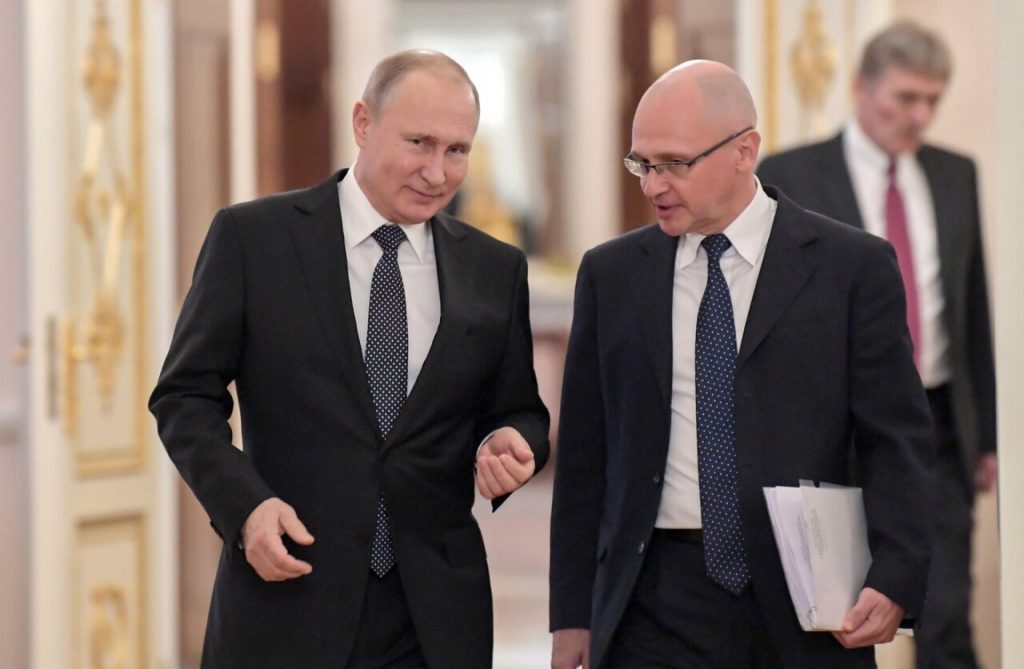
If before the war there was a competition between the group of Igor Sechin and the group of Sergei Chemezov, now this competition is levelled. Mainly because of the decrease in Sechin’s influence on the political processes in the country and also because Putin himself disapproves of squabbles between associates. One can speak of a shaky truce between the leaders of the state monopolies.
This truce was manifested, for example, in the fact that, according to Putin’s decision, the functions of executive power were divided for the second time between Sergei Sobyanin, who is considered a political ally of Sechin, and Prime Minister Mikhail Mishustin, who is close to the Kovalchuk-Kiriyenko-Chemezov group. At the same time, if earlier, during the fight against coronavirus infection, Sechin and Mishustin constantly intrigued each other, now these intrigues are not welcomed by Putin.
On most issues, Sechin is in solidarity with Patrushev and, by joint efforts, is trying to promote Patrushev’s vision of Russian expansionism in the external direction (India, Iran, Kurdistan, Africa, Venezuela).
The influence on Putin on the part of the representatives of the elder St. Petersburg team – Gennady Timchenko and the Rotenberg brothers – has seriously decreased. Especially after one of Putin’s closest associates, billionaire Konstantin Goloshchapov (known as “Putin’s massage therapist”), fled Russia in June 2022. According to Ascolta sources, over the past six months, Putin has never met with Arkady Rotenberg, a friend of his youth. He also distanced himself as much as possible from Gennady Timchenko (formerly considered Putin’s purse and played an essential role in organising the Yukos affair). Timchenko has recently been trying to convince European and American courts that rumours about his closeness to Putin are an exaggeration and that he was unfairly sanctioned. This has already irritated Putin: serious tax audits have recently begun at the enterprises of Timchenko’s partner, Leonid Mikhelson.
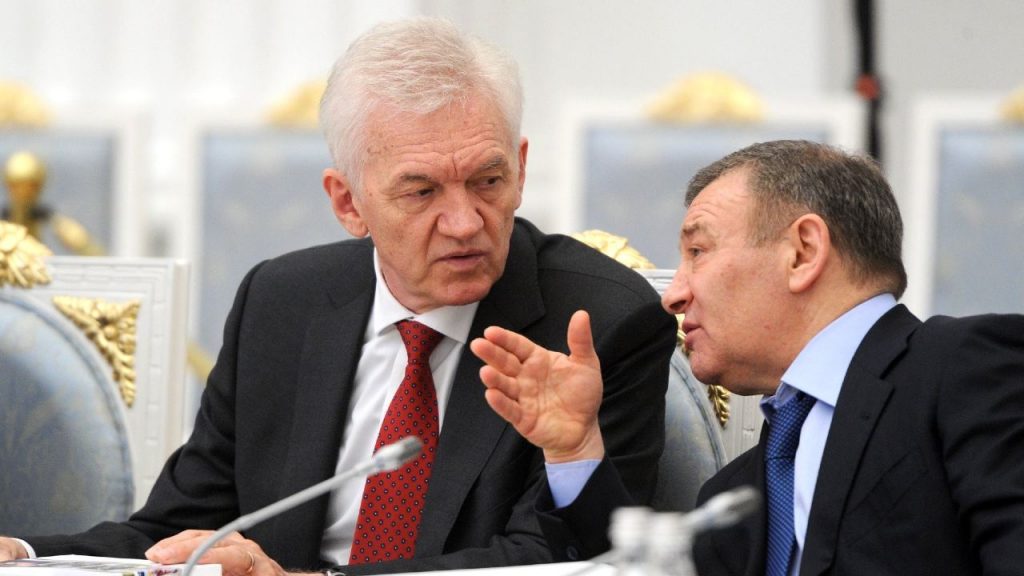
The list of oligarchs sending signals that they are ready to disown Putin, in addition to Timchenko and Goloshchapov, included the owner of Alfa-Bank Mikhail Fridman, billionaire Roman Abramovich, co-owner of the Sistema holding Sergey Mndoyants, owner of the ESN energy company Grigory Berezkin. In addition, Alisher Usmanov indicates his readiness for compromises with the West. A critical mass of those unsatisfied with the imposed sanctions is growing in Russia. Most of them demanded compensation from the state budget for assets lost in the West and hoped that, in return, they would be admitted to contracts in the domestic market. Now it turned out that their hopes were not justified. This led to disappointment.
However, it is not reasonable to hope that billionaires can organise resistance to Putin. They are far from politics, divided, and they also understand that the overthrow of Putin will not lead to the desired result for them:
The lost markets are filled with other players.
No one is waiting for them in Europe.
They will have to start practically from scratch.
Most likely, the Russian oligarchs will try to solve their problems behind the scenes, trying to bargain through the courts or lobbying schemes for easing in the form of the return of their property. Oleg Deripaska has done this (in fact, in Ukraine, the arrests on his shares and property of the Nikolaev alumina factory were cancelled; a review of UK-imposed sanctions against Deripaska is underway).
Also, one can hardly hope for an excessive activation of the “liberal bloc”, – especially after the resignation of the head of the Accounts Chamber, Alexei Kudrin and the emigration of Anatoly Chubais. The head of the Central Bank, Elvira Nabiullina, as well as German Gref and Anton Siluanov, do not play a serious role and, until recently, were only a “liberal” cover for Putin’s policy towards the West. In March 2022, they were confronted with a fact: either they play by the general rules or resign. Contrary to the expectations of many experts, the “liberals” decided to stay and play by the rules dictated by Putin.
An important point: Ascolta’s source confirms that the disgraced Deputy Head of the Presidential Administration, Dmitry Kozak (in fact, the only one who opposed the invasion of Ukraine at the meeting of the Security Council in February 2022), has regained his influence. Kozak even received an audience with Putin at the end of November. Moreover, he began to form his team, which would promote the policy of reconciliation with Ukraine and the West. But at the same time, one should not assume that Kozak will become the antipode of Putin or oppose Putin – his role will be determined within the framework established by Putin (at best, opposing the “hawks” and representing Putin’s interests in the negotiation processes). Furthermore, Kozak is trying to enlist the support of the head of the Russian Orthodox Church, Patriarch Kirill, who has recently also come out from the standpoint of the need for a compromise on the Ukrainian issue (this has already led to severe disagreements between Kirill and Dmitry Medvedev).
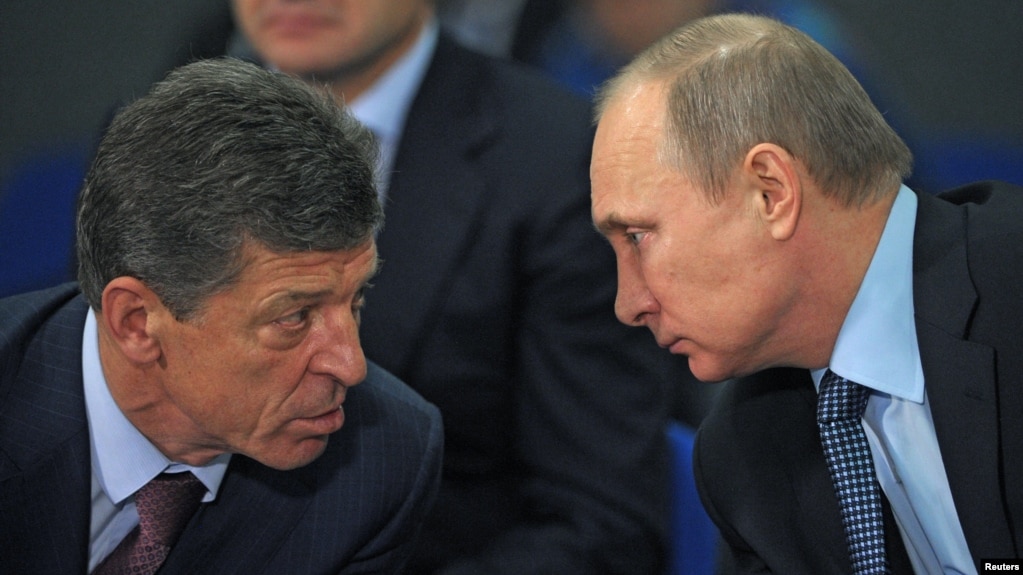
Also, in Putin’s entourage, a team of “super hawks” is beginning to form, which includes Evgeny Prigozhin, “Putin’s cook” and owner of PMC “Wagner”, as well as the head of Chechnya, Ramzan Kadyrov. On many issues, they are in solidarity with Dmitry Medvedev. However, this group came into conflict with the Kovalchuk-Chemezov-Kiriyenko group, and a visible manifestation of this conflict is Prigozhin’s attack on the governor of St. Petersburg, Alexander Beglov (a protege of the Kovalchuks). Also, the Prigozhin-Kadyrov group is trying to get Defense Minister Sergei Shoigu as an ally (Kadyrov’s open conflict with the commander of the Central Military District, Lieutenant General Alexander Lapin, is an attempt to side with Shoigu in a conflict with the generals).
Thus, today several groups of influence have formed in Putin’s entourage:
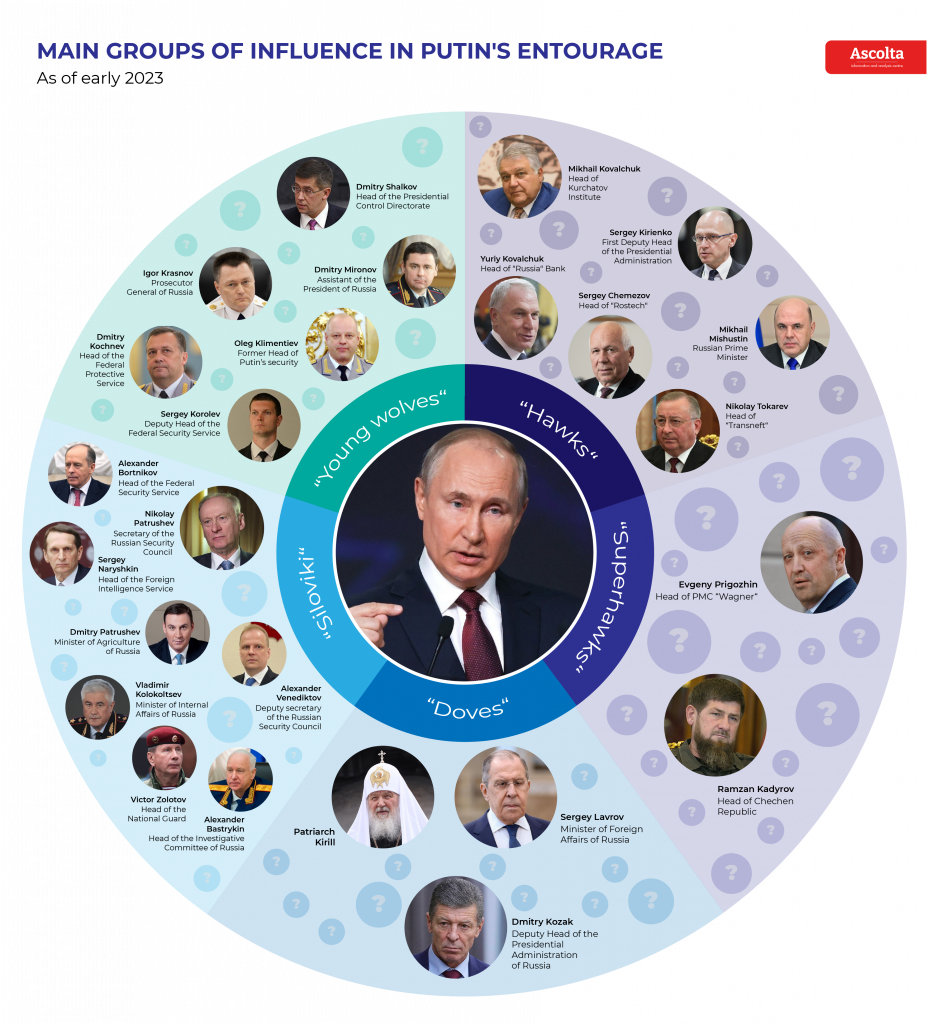
- A group of “Hawks”, betting on the continuation of the war in Ukraine, on the annexation of new territories to Russia (South-East of Ukraine) and the transformation of the rest of Ukraine into a vassal quasi-state entity. At the same time, concerning the West, this group considers as necessary to achieve recognition of Russia’s subjectivity and a new redistribution of spheres of influence in the world and Europe. This group is ready to negotiate peace not with Ukraine but with the “masters of Ukraine”, and the meaning of the negotiations will appear only after Russia receives more or less severe advantages in the war.
- A group of “superhawks”, believing that it is necessary to eliminate Ukrainian independence and recreate the empire, even at the cost of a possible armed conflict with NATO. This group injects “nuclear threats” into the media and criticizes the command for insufficient activity in offensive operations. Suppose for the “hawks”, the so-called “SMO” is a “company for the liberation of Ukrainians from the yoke of NATO and their Nazi puppets”, then for the “superhawks”. In that case, Ukrainian citizens are enemies that should not be reckoned with, and the territory of Ukraine is the Lebensraum of Russia.
- A group of “doves” who believe that it is necessary to start a dialogue with Ukraine on ending the war based on the recognition of either the existing front line as a new line of demarcation or based on Ukraine’s recognition of the rejection of Donbas and Crimea in exchange for the return of the Zaporizhzhia and Kherson regions and the signing of an agreement on friendship and good neighbourliness, which guarantees Russia’s participation in the restoration of the Ukrainian economy and the free admission of Russian goods to Crimea by land. In relations with the West, this group relies on a gradual reduction in sanctions pressure. Henry Kissinger’s last article in The Spectator played against the “doves”: the main argument of the “hawks” is that if earlier the West was ready to discuss the neutral and non-bloc status of Ukraine, now even Kissinger does not doubt that Ukraine will become a member of NATO, and what, then, can be discussed with the West at this stage?
- A group of security officials consider maintaining the regime’s stability within the country and strengthening Russia’s competitive advantages in the world. The war in Ukraine is viewed by them as a particularity, as one of the elements of a larger game in which there are a vast number of links (the Russian-American nuclear confrontation, the struggle for energy markets, rapprochement with China, the Middle East, Africa, Latin America, Central Asia, etc.). Arctic, etc.). Against this background, from the point of view of the security forces, Ukraine is a “European Syria”. They do not think in imperial terms – their thinking is the classic thinking of representatives of transnational corporations. Most of the agents of big business and state monopolies are grouped precisely around the security forces.
- A group of “young wolves” – representatives of law enforcement agencies, as well as managers who have worked in law enforcement agencies, personally oriented towards Putin, “Putin’s guard”, trying to replace the ageing generation of Patrushev-Bortnikov-Naryshkin. In their worldview, they are oriented towards the West (rather in terms of lifestyle rather than ideologically), as well as striving to take control of various business areas (mainly IT and other intellectually intensive areas). They believe that Western sanctions and mobilization are hurting their business base and harming their interests. Therefore, they are potentially ready to become allies of the “pigeons”.
These groups are now shaping the Kremlin’s politics, interacting with each other and organising the struggle for closeness to Putin.
Putin himself is trying to maintain internal competition in groups and sectors. For example, the apparatus headed by Kiriyenko is actively fighting the party leadership of United Russia (the confrontation between Sergei Kiriyenko and Andrey Turchak), which is especially noticeable on the ground, and discussions about the future of the occupied territories have further exposed this conflict.
Within the army, there is a conflict between four groups of influence:
- Defense Minister Shoigu, who is personally close to the President but is not perceived by the generals.
- The generals grouped around the Chief of the General Staff, Gerasimov.
- Personnel officers and the Main Political Directorate – the entourage of State Secretary Nikolai Pankov (the head of military intelligence, Admiral Kostyukov, also joins them).
- The “superhawks” of Kadyrov and Prigozhin, who form private military companies, try to show that their fighters are more efficient than all the Russian Armed Forces.
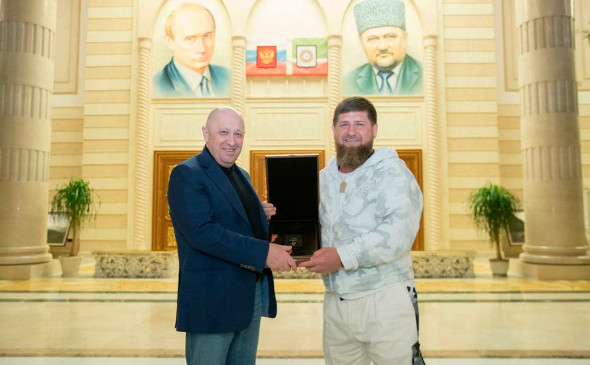
Inside the diplomatic bloc, competition is heating up between the Lavrov group (which has been weakened as much as possible recently and is focused on representative functions), the group of presidential aide Yuri Ushakov (who controls most negotiations and most personnel appointments) and the emerging group of Alexander Venediktov from the Security Council. At the same time, Venediktov, as Ascolta sources indicate, is gradually strengthening his position.
A controlled conflict exists in the economic bloc (the positions of Mishustin-Belousov come into conflict with the posts of Gref-Nabiullina-Siluanov, who were left without patronage from Kudrin, as well as with the posts of presidential aide Maxim Oreshkin).
A similar situation is observed in all directions. Putin created a classical model of governance based on the principle of “divide et impera” (“divide and rule”).
At the same time, the stability of this entire contradictory structure is determined by several attributes:
– there is no real opposition in Russia at all. Moreover, those claiming today to be the opposition are, in fact, more likely applicants for grants for pseudo-opposition demagoguery (Ponomarev, Feigin and others) or outright provocateurs.
– Putin has built a corporate system that can operate as a well-coordinated mechanism only if Putin himself is at the centre of this system. The elimination of Putin (his exiting from the presidency, death or illness) will lead to a fierce struggle for power. None of Putin’s associates can become a balancing element. The history of Russia shows that after a charismatic leader, an intensified battle for control begins in his entourage, which was observed in 1924-1927 after the death of Lenin, in 1953-1957 after the death of Stalin, and even in 1982-1985 after the end of Brezhnev’s era. In all three cases, the most unexpected figures came to power, who occupied relatively modest positions during the life of the previous leader. Putin’s entourage is afraid that Putin’s departure will lead not only to the destruction of the system but also to a sharp struggle within the system, which will turn out to be fatal for all current players. That is why the whole team works to preserve the system, seeing in it an element of self-preservation.
– the presence of an external enemy forces society to mobilise near Putin and the power vertical in general. Russians are characterized by solidarity and uncritical thinking when external forces threaten the country. The manifestation of discontent is regarded as work for the enemy. However, this is also typical for Ukrainians, which are now actively observed. The authorities can continue to count on the support of the broad masses of the people (the sociological data that gives Putin the approval of 3/4 of the population of Russia are by no means fantastic). And this support does not depend on mobilization, falling living standards, or losses at the front. The only thing that can shake support is the lack of visible victories at the front (as was observed during the First World War: a revolution was impossible in 1914 or 1916 when the Russian army demonstrated success, but a series of defeats, stagnation at the fronts and the introduction of food cards led to a riot).
– A classical estate society has been built in Russia, in which the estates themselves regulate relations, come into conflict with each other and do not allow rallying against the existing regime.
– there is no need to count on the strengthening of social problems: the National Welfare Fund of Russia today amounts to 11 trillion 389 billion rubles (USD 185 billion), equaling 8% of GDP in 2022 and continues to replenish due to the favourable situation in the world energy markets (the establishment of a “ceiling” Russian oil is not perceived as a threat by the EU countries; moreover, the existence of coordination in the energy sector between Russia, Saudi Arabia, Iran and the United Arab Emirates allows launching a boomerang effect to the West).
– the middle class, as the main interest in creating civil society and democracy in Russia today, is absent – mainly due to the sanctions imposed by the West during 2014-2022. Contrary to expectations, sanctions mainly hit the middle class, not the oligarchy. As a result, the middle class partially emigrated, was declassed, or started servicing the oligarchs. Mobilisation actions in September 2022 led to the fact that part of the “upper precariat” (“creative class”, highly paid managers, etc.) left Russia. Thus, the basis for the possible production of “colour revolutions” has been destroyed in Russia.
– the possibility of a “rebellion of the regions” or a “nationalist renaissance” in the regions of the Russian Federation is also doubtful. Separate administrative-territorial units play a less significant role in state policy: the administration of territories is carried out by the command-administrative method at the level of federal districts. Regional elites are limited in their political opportunities; regional counter-elites are nipped in the bud (as was evident in the case of the manifestation of nationalist tendencies in Tatarstan in 2017-2018 or during the “Furgal case” in Khabarovsk in 2020). Betting on the collapse of Russia is groundless in the foreseeable future.
Thus, today it can be stated that the system created by Putin has a severe margin of stability and can only begin to collapse with the exiting of Putin himself. Otherwise, the system is not threatened by a “revolution from below” (rebellion), a palace coup, centrifugal processes, or external influence. Moreover, there is no reason to hope that Russia is about to fall apart today – especially after the strengthening of relations with the People’s Republic of China, as well as Turkey, Iran and India (the cancellation of a personal meeting between Putin and Indian Prime Minister Narendra Modi did not become an obstacle to the development of economic and political relations between two countries).
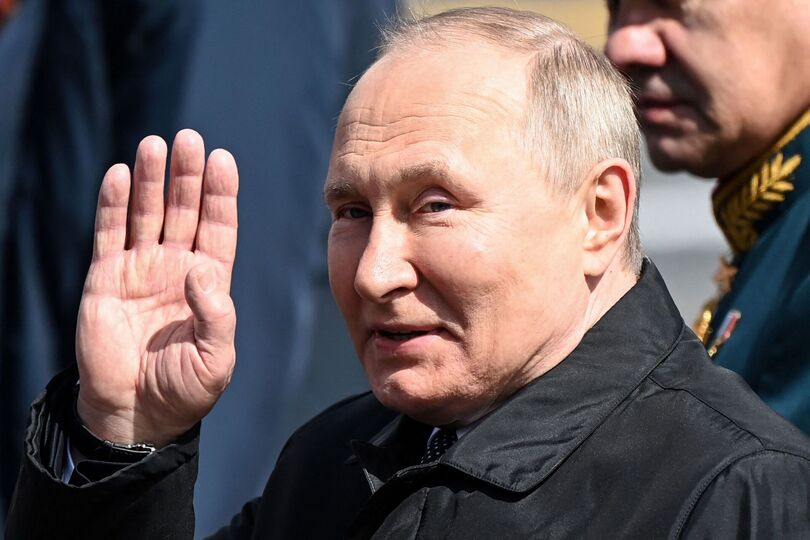
However, in the perspective of 2-3 years, the apparent stability of Russia may change due to the following:
- The need for transit of power.
- Generational change in politics.
- Changes in the situation in foreign markets.
- Change of allies and world architecture.
- Aggravation of relations between the leading political players.
- The consequences of the global economic crisis.
In such a situation, it is difficult to talk about Russia’s internal stability and immutability. Of course, the future crisis is embedded in the system itself, but this is a matter of a distant future.

